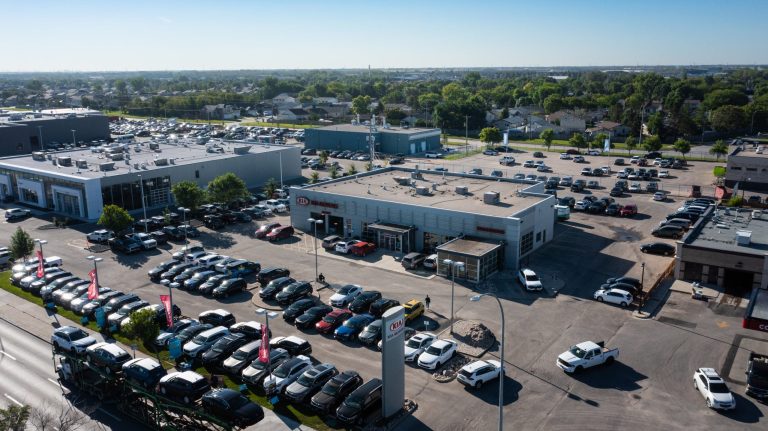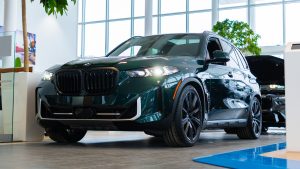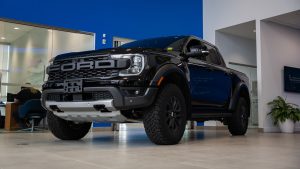When shopping for a vehicle, one of the biggest decisions you’ll face is whether to buy new or used. Both options have their pros and cons, and the right choice depends on your budget, preferences, and priorities. We’ll break down the pros and cons of new and used vehicles to help you choose which is right for you!
Buying a New Vehicle
The Pros:
Latest Features and Technology
A new car comes equipped with the latest in safety, entertainment, and performance technology. Features like adaptive cruise control, lane assist, and the most up-to-date infotainment systems are standard in most new models.
Warranty Coverage
New vehicles come with full manufacturer warranties, often covering repairs for three to five years. This peace of mind can be a huge benefit, as you won’t need to worry about unexpected repair costs during that period.
Customizability
When you buy new, you can often choose the exact model, color, features, and trims you want, especially if you place a factory order. This customization allows you to drive away in a vehicle that perfectly matches your needs and preferences.
Read more: What Can You Customize on a Factory Order?
No Vehicle History Concerns
With a new vehicle, there’s no need to worry about previous owners, accidents, or maintenance issues. Everything is in pristine condition, which lowers the risk of unexpected problems down the road.
The Cons:
Higher Price Tag
New cars come with a higher price. If you’re on a tight budget, the cost of a new vehicle may be prohibitive, especially if you opt for higher-end models with extra features.
Depreciation
New cars start to lose their value the moment you drive them off the lot, typically depreciating by 20-30% in the first year alone. If you plan to sell or trade-in your car within a few years, this depreciation could be a disadvantage.
Buying a Used Vehicle
The Pros:
Lower Cost
One of the most significant advantages of buying a used vehicle is the lower price. A used car is often much more affordable than a new one, allowing you to stretch your budget further and potentially afford a better make or model.
Slower Depreciation
While new cars depreciate quickly, used vehicles have already gone through the sharpest depreciation period. This means the car you buy won’t lose its value as dramatically as a new one would.
Lower Insurance Costs
Since used cars generally have a lower value than new cars, insurance premiums tend to be cheaper. This can save you money on a month-to-month basis.
Certified Pre-Owned (CPO) Vehicles
Birchwood offers certified pre-owned vehicles, which come with warranties and have undergone thorough inspections and reconditioning. This can provide the peace of mind that comes with buying a reliable used vehicle without the higher cost of a new one.
Read more: Used vs. Certified Pre-Owned Vehicles: What’s the Difference?
The Cons:
Limited Warranty
While some used cars, particularly certified pre-owned vehicles, come with warranties, they are typically shorter or more limited than those for new cars. If the vehicle is not certified, you may face higher repair costs once the warranty expires.
Potential Maintenance Issues
Depending on the car’s age and mileage, used vehicles may require more frequent repairs or maintenance if you’re buying privately. Luckly, all used vehicles are safetied and reconditioned at Birchwood, meaning vehicle issues will be fixed before it is sold.
Fewer Customization Options
When buying used, you may have to compromise on the vehicle’s features, color, or condition. You’ll be limited to what’s available on the lot, which might not perfectly match your preferences.
Higher Financing Rates
Used vehicles can sometimes come with higher interest rates on financing compared to new vehicles. This is because lenders view used cars as riskier investments, and this may increase your monthly payments.
When Should You Buy a New or Used Vehicle?
Consider buying a new car if:
- You want the latest technology and safety features.
- You’re concerned about maintenance costs and want a long-term warranty.
- You plan on driving the car for many years and want it to suit your preferences exactly.
- Depreciation and higher initial cost aren’t deal-breakers for you.
Consider buying a used vehicle if:
- You’re working with a limited budget and want to avoid the depreciation of a new car.
- You’re comfortable with a vehicle that may not have the latest technology but still meets your needs.
- You’re willing to do some research to find a well-maintained vehicle with a good history.
- You prefer lower insurance premiums and financing costs.

The decision between buying a used or new vehicle ultimately comes down to your individual priorities. If you’re looking for the latest features and the security of a full warranty, a new car might be the way to go. However, if you have a tight budget and want to avoid the depreciation of a new vehicle, a used car can offer significant savings.
Our expert product advisors at Birchwood can help you figure out what’s most important to you, whether it’s cost, features, or peace of mind, and help you find your perfect vehicle!


